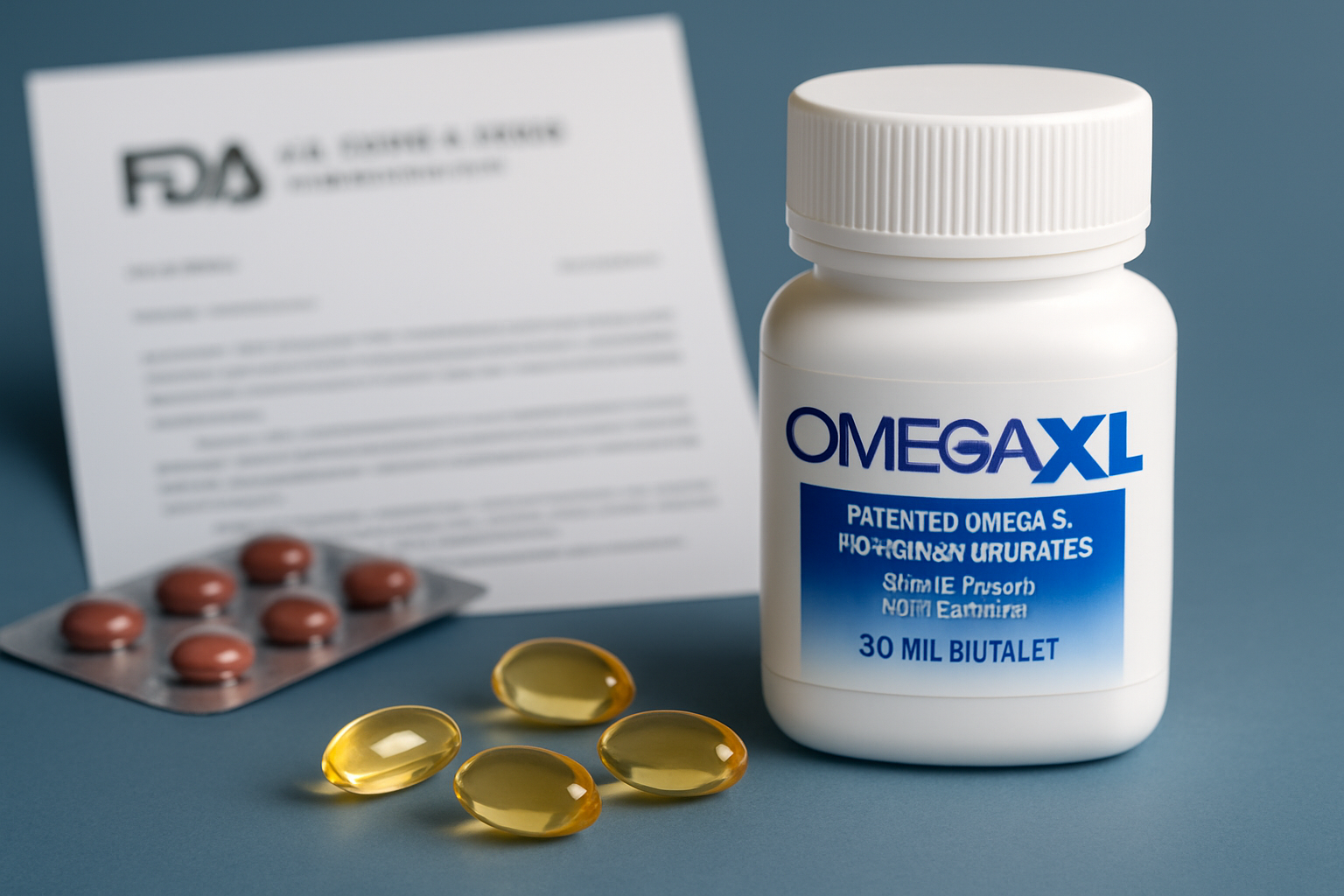What Is Omega XL?
Omega XL is a dietary supplement. Great Healthworks manufactures and sells it across the United States. The key ingredient is PCSO 524. This oil come from green lipped mussel found in New Zealand. The company says this blend supports joint health and reduces inflammation.
Omega XL does not list common omega 3s like EPA or DHA on it label. Instead, it uses a “proprietary blend.” That makes it different from standard fish oil. The brand markets this as a strength. They claim the formula works faster and lasts longer.
TV ads and online videos often show famous people praising the product. They say it helped them move better and feel younger. These claims make Omega XL look like a premium solution. Many buyers believe it offers more power than fish oil. Some say it gave them major pain relief in just a few weeks. Others say it helped where nothing else worked.
These bold promises built trust with consumers. That trust now faces new doubts due to the FDA’s warning.
What Did the FDA Say
The “Misbranded” Label
The FDA called Omega XL a misbranded product. That term has a clear legal meaning. It means the product made claims it was not allowed to make. In this case, Omega XL claimed to treat medical conditions. That is illegal for supplements.
Supplements can say they “support” health. They can’t say they “treat” or “relieve” disease. When a supplement crosses that line, the FDA steps in. That’s exactly what happened here.
The FDA said Omega XL’s language made it look like a drug. That turned a supplement into a misbranded item under the law. The company had just 15 working days to fix the problem. The agency gave them a chance to change the language and comply.
If Great Healthworks failed to act, the FDA had options. It could seize the product. It could take the company to court. It could force them to stop selling Omega XL until they fixed every issue. That made the warning more than just a letter. It was a signal of real legal risk.
Is There a Lawsuit in 2025?
No class-action lawsuit exists yet. But one could start soon.
Lawyers watch FDA warnings closely. They wait to see if many people say they lost money or trusted false claims. If that happens, a lawsuit becomes likely.
To start a class action, lawyers need three things:
A proven FDA violation
A large group of consumers
Evidence of financial loss
Omega XL already checks one of those boxes. More consumer complaints could trigger legal action.
Does Omega XL Work?
Omega XL contains a unique lipid extract. Some studies say this ingredient may reduce inflammation. The studies were small. Most involved fewer than 60 people. Some had no control groups. The manufacturer paid for many of them.
That weakens the research. ConsumerLab reviewed Omega XL. It found the product lacked strong evidence. It also found a major issue with the label.
What’s Missing on the Label?
Omega XL does not list how much EPA or DHA it contain. These two omega 3 fatty acid are the most important for joint health. Most fish oil product include exact number for both. That help buyer know what they are getting.
Omega XL takes a different approach. The label only mentions a “proprietary blend.” It does not say how much of each ingredient is inside that blend. That creates a problem. You can’t see the levels of the nutrients that actually help reduce inflammation.
This lack of detail raises concerns. Many doctors say transparency matters in supplements. If a label hide basic fact it become harder to trust. A vague blend with no clear amounts fails that test.
You should also know that ConsumerLab tested Omega XL. Their report showed the product had far less EPA and DHA than standard fish oil. That means the product may not deliver what it promises. Without full details, you end up guessing. That is not a smart way to care for your health.
Proprietary Blend Red Flags
Proprietary blends allow companies to skip full disclosures. That can be legal, but it raises questions. Many experts say this is a red flag. It hides the truth from the consumer.
Supplements that don’t list amounts of active ingredients should raise concerns. You should stay away from mystery blends.
Could a Class Action Happen?
Yes. The FDA warning opens the door. If enough people say they relied on misleading ads, lawyers could act. The claims must also involve financial harm.
Omega XL’s claims are already under federal review. That gives legal teams a strong starting point.
Watch for Misleading Claims
You might see phrases like:
Supports joint health
Promotes flexibility
Helps maintain normal inflammation
These are legal. They are called structure-function claims. But phrases like “treats arthritis” or “relieves pain from inflammation” cross the line. Those are drug claims.
The FDA says Omega XL made those illegal claims. That is why the warning letter matters.
Steps to Make Safer Choices
Supplement should be safe clear and honest. Here are smart steps to take:
Check the label. Look for EPA and DHA amounts.
Look for third-party testing. Certifications prove quality.
Ignore celebrity ads. Fame does not equal facts.
Search the FDA database. See if the company has warnings.
Talk to your doctor. Get advice that fits your condition.
Omega XL vs. Regular Fish Oil
| Feature | Omega XL | Standard Fish Oil |
|---|---|---|
| EPA/DHA listed | ❌ Not shown | ✅ Clearly listed |
| Proprietary blend | ✅ Yes | ❌ No |
| Third-party tested? | ❌ No | ✅ Often certified |
| FDA warning letter | ✅ Yes (2021) | ❌ Rare |
| Monthly cost | High | Low |
Doctors still prefer regular fish oil. It costs less. It shows clear data. It also has more reliable studies.
FAQs
Did the FDA ban Omega XL?
No. The FDA sent a warning about illegal marketing. The product remains on shelves.
Is there a lawsuit in 2025?
Not yet. But the FDA letter makes one more likely.
Is Omega XL safe to use?
It doesn’t seem harmful. The bigger issue is false advertising. Also, the label lacks important omega-3 data.
How do I report a bad supplement?
Contact the FDA’s CFSAN department. You can also file a complaint with your state’s attorney general.
Final Word
You can still buy Omega XL. No ban exists. No recall has taken place. If the product helped you, you don’t need to panic. But you should know the facts.
The FDA caught the company making illegal health claims. Those claims crossed the line between supplement and drug. That is a serious issue under U.S. law.
The science behind Omega XL does not look strong. The company relies on small studies. Most of those had weak setups. Many were funded by the product’s maker. Also, the label hides key details. You don’t know how much EPA or DHA it contains. That makes it hard to trust.
Doctors usually recommend regular fish oil instead. It shows exact omega-3 levels. It costs less. It has more research behind it.
A lawsuit could still happen. If more people feel misled, lawyers may step in. That’s why the FDA warning matters. It sets the stage for legal action down the road.
You should always pick supplements with clear labels. Look for third-party testing. Avoid product that hide ingredient behind fancy name. That the safest way to protect your joint and your money.




